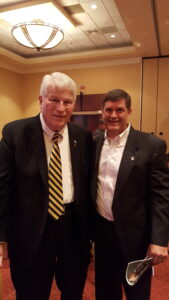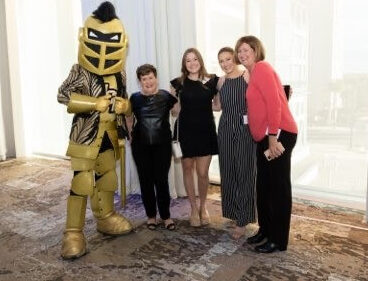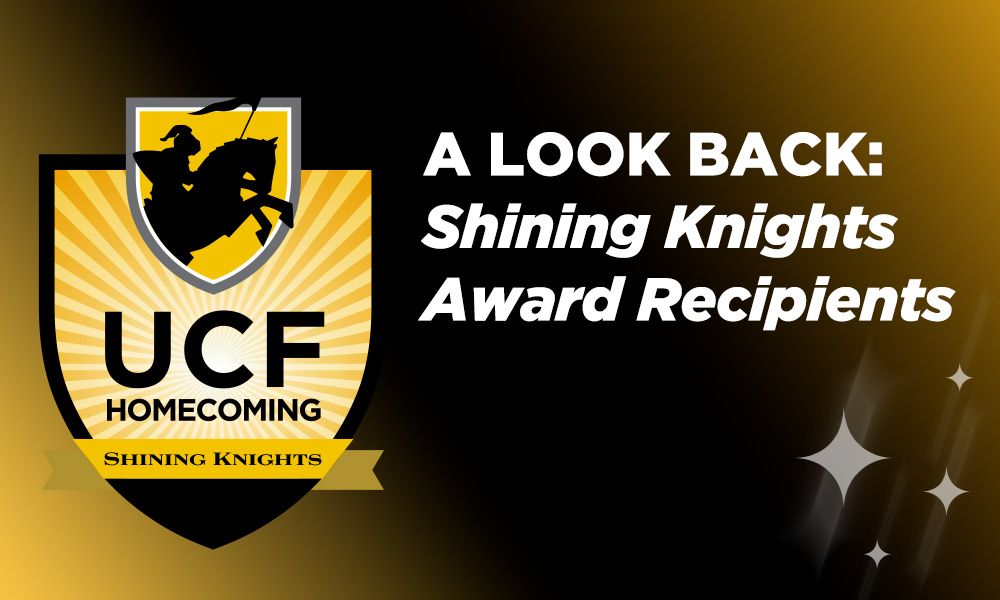Building Communities Through Engineering and Philanthropy: Tim Smith ’98 Shares His Story
Since the inception of Wharton-Smith Construction Group, Inc. nearly 40 years ago, its company culture has been focused on hard work, integrity, giving back to the community, and every once in a while, taking a leap of faith, according to Tim Smith ’98, president and CEO. Smith succeeds Ron Davoli, who is now the firm’s Chairman of the Board.
Sometimes, Tim says, the “leap of faith” is not metaphorical. He regularly participates in motocross/hare scrambles, off-road competition events in which the riders race through several-mile-long marked courses which may include jumps over small creeks.
Tim doesn’t recall exactly when he became interested in the sport; he had a small dirt bike growing up, and after he graduated from Auburn University, he and his friends decided their baseball-playing days were over. They decided on motocross.
For a while, Tim’s wife Sheila also joined in on the fun racing/riding together.
As Tim recalls, “She said, ‘Well, if you’re going to race, I’m going to race, too!’”
Sheila Smith, as her husband says, is the smart one in the family, and has mostly retired from racing with her husband.
Sheila and Tim Smith met at Auburn; she was studying chemical engineering, and Tim was wavering between civil engineering and finance.
The Decision to Join the Family Business
Even though Tim grew up in the family business, visiting water/wastewater sites with his father, George Smith, and occasionally earning money doing field work during summers in high school, he wasn’t entirely convinced that it was his destiny. He had been a standout baseball player at Lake Brantley High School, and had been recruited by some colleges, but he was set on Auburn. Perhaps that was his calling.
“I liked Auburn,” Tim Smith says. “And even though I had visited other colleges, when I met the coach at Auburn, he told me that I could try to ‘walk on’ as a pitcher, so I figured I would do that when I got there.”
He skipped the Auburn tryouts. He did not earn a spot on the baseball team.
At the time, Auburn was on a quarter system, and Tim’s first quarter probably did not show his best efforts. He got a call from his dad, who suggested he might do better in Orlando.
“George wasn’t the type of person to tell you to do something,” Tim says. “He would never pressure, he would ask you questions, and try to get you to think for yourself.”
Tim was thinking that even though he wasn’t sold on joining the family business just yet, he knew that having a background in finance would be helpful in any career.
Tim listened to his father but decided to stay at Auburn. He had grown close with some members of Sigma Pi, one of the oldest fraternities at Auburn. Before he could pledge, however, he had to get his grades up.
By the time Tim had graduated with his degree in finance, he still wasn’t sure what he wanted to do with his life.
He began working in the field for Wharton-Smith. He knew that he had a limited window to commit. Once he made his decision, he told Sheila that not only was he all-in on Wharton-Smith, but he also wanted to go back to school for his civil engineering degree.
“She cringed when I told her I wanted to go back to school,” Tim says. “We were a young married couple, and although she fully supported me, she knew that it was going to be hard for me. I hadn’t been the best student at Auburn, and this would be even more difficult working fulltime.”
Going Back to School for Engineering
Tim enrolled at Seminole State, with his sites on transferring to UCF. He was not initially welcomed with open arms, he recalls.
“One of my professors told me to not quit my day job,” Tim says. It was a tough-love kind of approach; he had seen many nontraditional students enroll in the program and fail to graduate.
Challenge accepted.
“As a nontraditional student, as well as someone who was already working in the industry, I feel I had a better perspective than many of the students,” Tim says. “I was able to develop professional relationships with my professors, and through Wharton-Smith, I was able to help arrange trips to our job sites to show my classmates more about the business than perhaps they would have seen otherwise.”
George, true to his nature, was never Tim’s supervisor.
“It just worked out better that way,” Tim says. “He was definitely my mentor, and I could ask him anything, but it was a better strategy that I did not directly report to him.”
Wharton-Smith Today
The company that Bill Wharton and George Smith began in 1984 has grown into ten regional offices across the Southeastern United States, with annual revenues of over $700 million, and more than 700 employees. The company specializes in building schools (K-12 and higher education), community centers, public safety, parks and recreation, corrections, sports, water and wastewater, entertainment, mixed-use, and hospitality projects, according to its website. “All the things a community needs to thrive.”
Wharton-Smith – both the company and its individuals – have been extremely generous not only to UCF, but to the Central Florida communities, and the communities in which the organization has regional offices.
Tim Smith says that a special point of pride, not only for him, but for the 80 or so Wharton-Smith employees, is UCF’s stadium. Even employees who are no longer with Wharton-Smith have told Tim that working on our stadium was very meaningful for them.
UCF football stadium construction update
“I remember before we had a stadium, and wherever I would go, there was always discussion about whether we should have one,” Tim says. “I knew that we would be crazy not to, stadiums bring everybody back to campus.”
George Smith, an alumnus of The Ohio State University, had attended football games there, but when he moved to the Orlando area, began adopting UCF’s Knights as his hometown team.
“George is retired now and for health reasons cannot get out like he used to,” Tim says, “But he gets to an occasional game, and he is still one of UCF’s biggest fans. You would think he was a Knight, not a Buckeye.”
Tim says that Wharton-Smith’s incredible generosity over the years is where he learned his own values of giving back – not only to UCF, but to the other organizations he and his family support, including Kids House, Leadership Seminole, Habitat for Humanity, Seminole State College, and the Central Florida Zoo.
“Even when they started the company 40 years ago, Bill and George always wanted to be able to give back to the community through causes they cared about, especially children’s issues and education,” Tim says. “They always budgeted for that, and as the company started to make more, they started to give more.”
What UCF Means to Tim Smith
When Tim graduated from UCF, he says that he may not have totally grasped the idea of what it meant to support one’s alma mater.
“It can be hard as a young alumnus,” Tim says. “We went to football games and made gifts when we could, but Sheila and I were also busy raising our three daughters, and UCF was not always at the top of our minds.”
But now, with Wharton-Smith’s success, Tim has also discovered a lot more reasons to give back to the community; sometimes, he has to check to make sure he isn’t doing too much because he still has his “day job.”
He is also still hitting the trails whenever he can.
“It’s a great way to stay in shape,” Tim says. “There are plenty of guys in their 60s and 70s who are still tearing it up on the course. It’s the kind of sport that looks more dangerous than it really is.”
It’s also a great way to enjoy a moment or two as a “celebrity,” he says. “When we race in Mexico, little children come up to us and ask us for our autographs. They have no idea who I am, but I go ahead and sign my name because they get so much joy out of it.”
Tim says one of his best pieces of advice for alumni is to get engaged. Connect with people who are in your area of influence. Stay involved. Give back.
“It’s really not that hard,” Tim says. “During some periods of life, you might be able to give a lot, other times it may be a little. And even if it’s just a little, it can still mean a great deal to UCF students and the projects and programs that are important to you. It’s good as an organization to give back to UCF, but it is more than our hometown team. It’s a privilege to have a large university like UCF in your backyard.”


